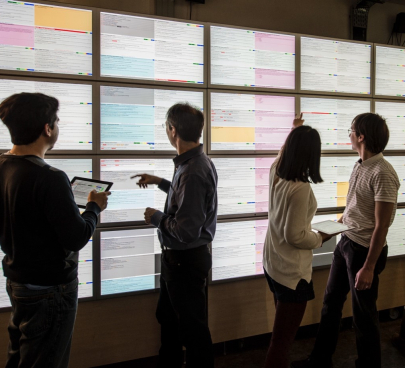National research programme Digital collaboration (PEPR eNSEMBLE)
The national research programme Digital collaboration (PEPR eNSEMBLE) aims to propose sociotechnical models for long-term collaboration and multi-organizational, sovereign, secure and interoperable collaboration platforms that promote trust, efficiency and digital well-being.
|
The national research programme Digital collaboration (PEPR eNSEMBLE) aims to fundamentally redefine paradigm and sociotechnical models for collaboration. The pandemic has given us a glimpse of both the possibilities and the limitations of current tools for digitally mediated collaboration. Whether it's to reduce our travel, to better connect the territory, or to face the problems and transformations of the next few decades, the challenges of the 21st century will require us to collaborate at an unprecedented speed and scale. To do this, a paradigm shift in the design of collaborative systems is necessary. To collaborate in a fluid and natural way while taking advantage of the capabilities of digital technology, collaboration and sharing must become native features of digital systems, just like files and applications are today. To achieve this, we need to invent shared digital spaces that go beyond replicating the physical world in virtual environments, allowing co-located and/or geographically distributed teams to work together in a fluid and efficient manner.
Beyond this technological challenge, the Digital Collaboration research program also carries a sovereignty and societal challenge: by creating the conditions for interoperability between communication and sharing services to open up the "walled gardens" that force all participants to use the same services, the objective is to enable new actors to propose solutions adapted to the needs and usage contexts. Users will thus be able to choose combinations of tools and services, potentially "intelligent", to define mixed physical and digital collaboration spaces that meet their needs, without hindering their ability to exchange with the rest of the world. By making these services more accessible to a wider population, it will be possible to contribute to reducing the digital divide.
